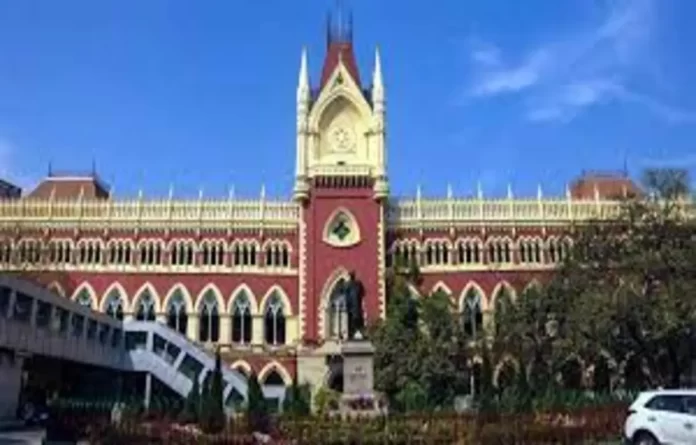The Calcutta High Court has dismissed a Public Interest Litigation (PIL) seeking a direction to recall and/or cancel and/or quash the entire process of selection and empanelment of the advocates made by the respondent/State Bank of India in relation to advertisement of March 2019.
The PIL has been filed by a practicing advocate.
After the Division Bench of Chief Justice T. S. Sivagnanam and Justice Hiranmay Bhattacharyya elaborately heard the petitioner appearing in person and carefully perused the materials placed on record including the averments stated in the petition, the bench found that the petitioner is not entitled to any relief in the petition for more than one reasons.
Firstly, the empanelment was done in 2019 and the petitioner, a candidate of the said selection process, after failing to get himself empanelled filed this PIL in 2024. Therefore, the petition is liable to be dismissed on the ground of inordinate delay and latches, the Court noted.
Apart from that, the Court noted that very recently the Division Bench in the High Court of Judicature at Madras had dealt with an identical case in the case of Chairman and Managing Direction, UCO Bank vs. K. Marimutthu & Ors. (W.A. No.2199 of 2023).
Much of the averments made in the petition were identical to that of the averments made in the petition filed before the said High Court in WP No.13832 of 2013. The Single Bench had disposed of the petition by judgment and order dated 31.03.2023 issuing various directions. All nationalised banks were impleaded as respondents in that petition.
One of the banks, namely UCO Bank, who was impleaded as respondent in the petition, filed an appeal before the Division Bench and by a common judgment dated 22.01.2024 the appeals were allowed and the directions issued by the Single Bench were set aside. At this juncture it would be beneficial for us to refer to certain paragraphs of the said judgment which has in depth dealt with the relationship of the empanelled lawyers with that of the bank.
The contour of the submissions of the counsel for the appellants is that the bank has its own procedure for empanelment of lawyers. The empanelment of lawyers is not an appointment to a civil post so as to attract Article 16 of the Constitution of India. Reservation is not contemplated while empaneling the lawyers. The engagement is merely contractual.
The Apex Court in a catena of judgments has laid down the scope and ambit of the powers of judicial review under Article 226 of the Constitution of India. It is well established that the power of judicial review is not intended to assume a supervisory role. For a public remedy enforceable under Article 226 of the Constitution of India, the actions of the authority need to fall in the realm of public law. The courts will not have jurisdiction to entertain a petition in a matter governed by contract, wherein a public law element would not be involved.
The empanelment of lawyers by the banks cannot be on the pedestal of employment for holding a civil post. The lawyers empaneled by the bank are not governed by the service rules of the bank. The conditions of appointment of the empaneled lawyers are not governed by any statute, rules or regulations.
Article 16 of the Constitution of India would apply in matters of public employment or appointment to any office under the State. The Court may extend the concept of employment or appointment under the office of the State to the instrumentalities of the State also. However, for invoking Article 16 of the Constitution of India, it will have to be demonstrated that the matter is in the realm of public employment or appointment to any office under the State. As the lawyers engaged by the bank do not hold a civil post, nor the relationship of master and servant exists, Article 16(4) of the Constitution of India would not be applicable. The criterion to apply the reservation policy would not be attracted.
Each bank has its own procedure for empanelment of the lawyers. The Single Judge in the impugned judgment has referred to the circulars issued by the respective nationalized banks and public sector banks providing for the process of empanelment. The procedure prescribed in the said circulars contemplates the criteria for empanelment; process of empanelment; authority for empanelment; preparation of revised list by the zones; distribution/allocation of works, other conditions for empanelment; review of the performance; parameters for reviewing the performance of the panel advocate; de-paneling of advocate; and review at head office level.”
The Division Bench further observed that the banks have laid down procedure for empanelment and certainly the banks have to adhere to the said procedure and it would be stretching Article 16 of the Constitution of India too far to apply it for empanelment of lawyers by the banks. By not providing for the reservation in empaneling the lawyers, no provision of the Constitution of India is violated. Further, the Division bench observed that the relationship between the banks and empanelled lawyers is purely a professional relationship and not that of a master and servant. Several decisions of the Hon’ble Supreme Court were also referred to and ultimately the appeals were allowed.
Thus, for the aforementioned two reasons, the High Court was not inclined to entertain the petition.


